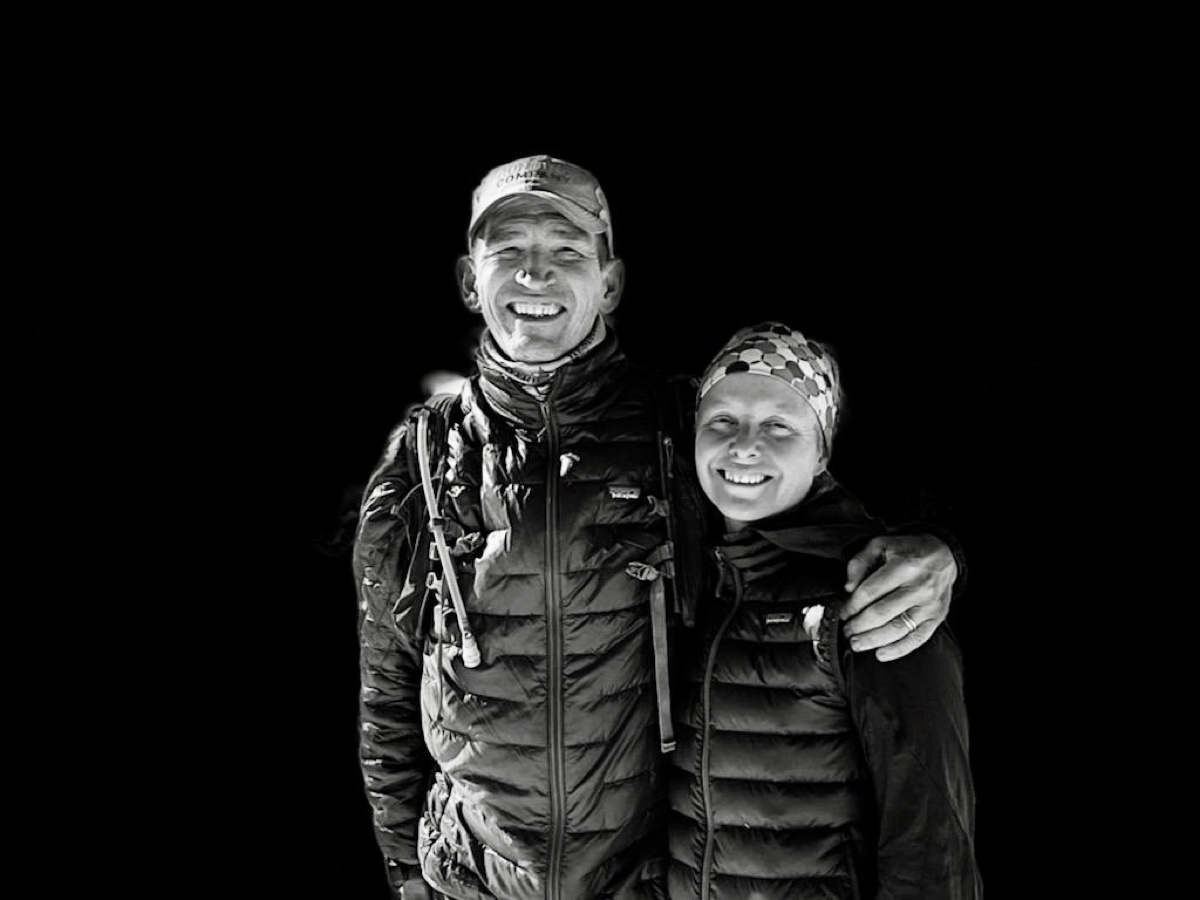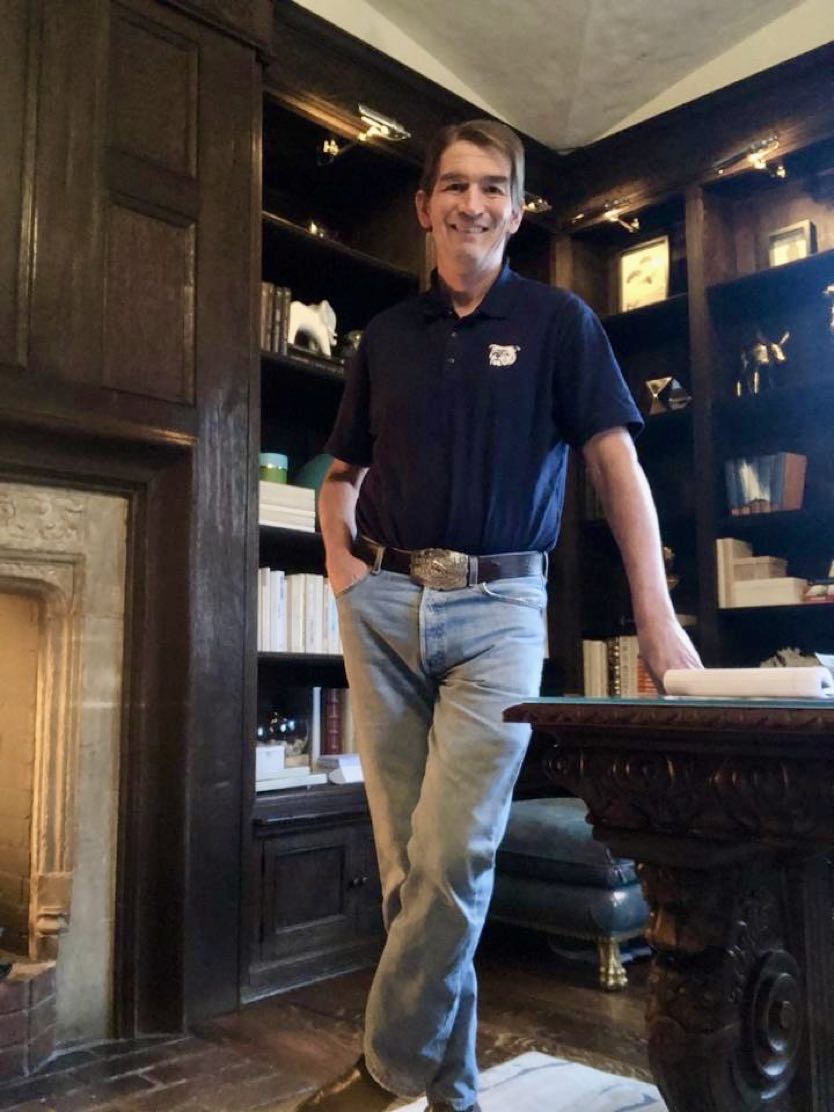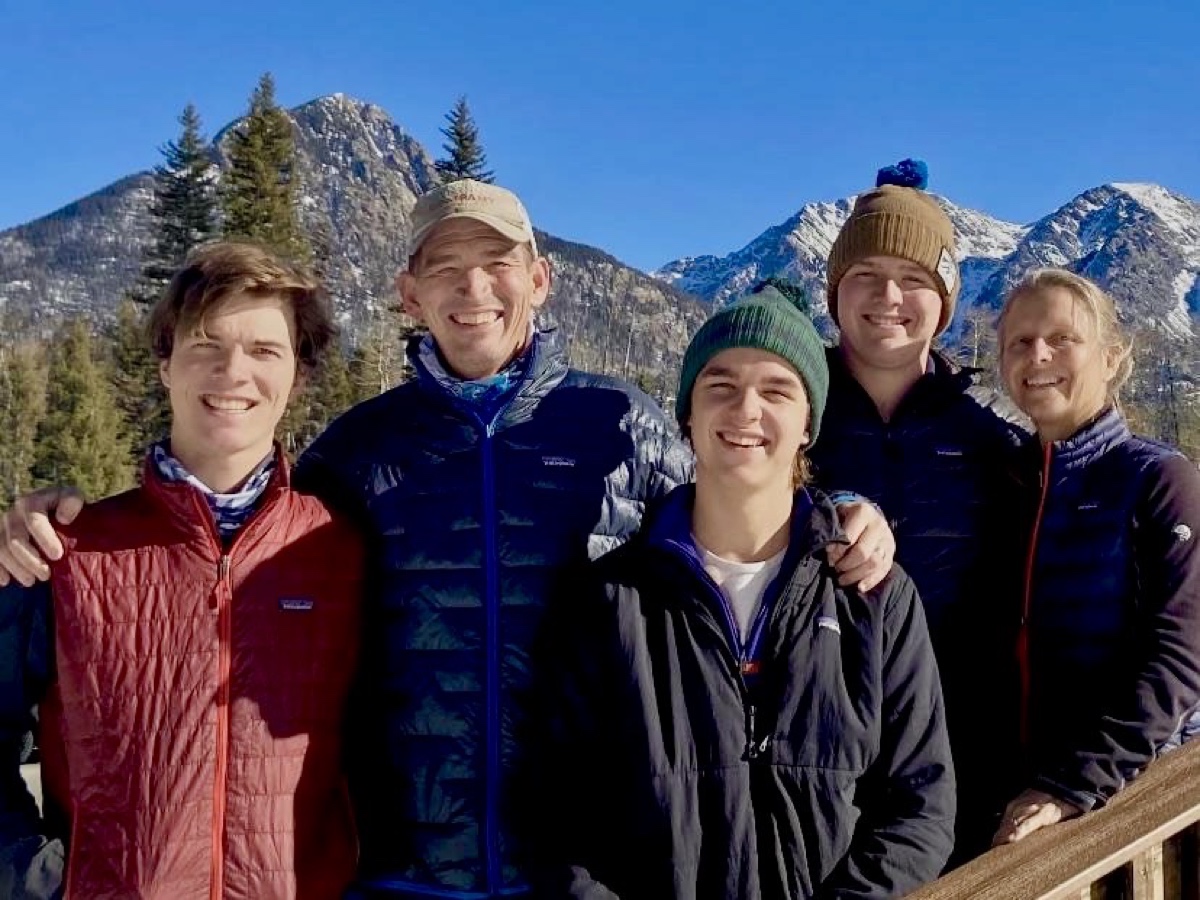“It’s a left-hand turn here,” Andy Jones-Wilkins (AJW) points to his wife from the passenger seat. They’re after lunch and nearly halfway into a 10-hour day of driving. The family is traveling back from a Christmas visit to their oldest son in Durango, Colorado, and a later stop in Arizona, to their home in Wilson, Arkansas. It’s an almost 1,500-mile drive.
I’ve waited a decade to ask, and immediately press AJW on the most basic question. “Andy Wilkins married Shelly Jones in New York state in 1991,” he said of his last name. “We wondered what we’d do for the kids, but we kicked that can down the road and they can figure it out. We didn’t give them middle names, but they’re 23, 21, and 18 now and kind of like, ‘Why the hell did you do that? What if we want to marry someone with a hyphenated last name?'”
AJW is well-known in ultrarunning and on iRunFar, and that last-name bit was hardly the reason I sought him out. He’s heavy on running, but his life outside of sport is particularly interesting too. He’s moved around the country for work, including earlier stops in Sun Valley, Idaho and Charlottesville, Virginia over the past decade, and currently is The Delta School’s headmaster in Wilson, Arkansas. He’s been there for the last two years.
I ask about the moves, and he answers simply, “It’s interesting, my career started in very traditional private schools, but if you get on the administrative track, it’s imperative to move around.” A headhunter lured him to his current role, pitching a very progressive school in a non-traditional market, and the timing for a move worked too with his two oldest sons already in college. “Tully, our youngest, still had two years of high school. It was hard,” he said with a bit of a sigh, and a glance to the back seat. “He was not happy, but we’d had this model with his brothers too. A byproduct of it is that they’re comfortable anywhere, they make friends easily.”
He shoots down any more near-term moves. “We’ve got a lot to accomplish [at The Delta School]. We’re trying to move from, kind of, the euphoria of a start-up to a more established school,” he said, and then gasped a bit, “and COVID-19 did not make that any easier. We worked all summer long on our procedures. We’re a small school, about 100 students in kindergarten through 12th grade, and we’ve got a large, spacious campus, lots of outdoor classroom space. We do masks on the playground, no sports, but this is a population that really wanted to return to in-person learning, and it worked.”
I press AJW on the transition from the school’s early stages and he names three goals. “There will always be some dependency on the Lawrence Foundation, they underwrite about 50% of our operating expenses, but we have some ideas to reduce that. It’s part of maturing as a school. Second, we’ve got to put a lid on turnover. Some of that is natural as a start-up, and we only lost one teacher last year. The third part is ongoing as well and we need to be clear about who we are in our marketing. We are not all things to all people.”
The Delta School is very progressive and he better explains what that means, and how the school differs from some of his earlier experiences. “Everything’s very hands on. We’ve got a massive maker space, lots of projects, the garden is essential–food science is part of our program,” and then he went deeper on what it means to be a maker. “We’ve got power hand tools, laser cutters, 3D printers, video equipment. There are kids as young as four, and we’re gearing all of our projects to working with our hands.”
I’ve got a kindergartner, and that’s the easiest comparison I can make, so ask AJW for examples of kindergarten projects. “In our first project cycle, they worked on self-care and first aid with our school nurse and local fire and ambulance services. They gave a presentation on how to fix a ‘boo-boo’ and built their own first-aid kit. In our second project, they created a butterfly house and raised a dozen or so monarch butterflies. Some of our older elementary kids worked to create ‘extraordinary experiences for everyday things,’ and that was kind of inspired by some of the sadness around COVID-19. We have boot bins for the garden, where the kids keep their boots and they built an electrical system that returns a happy sound when the boots are put in right. Another grade, with colder weather coming, they wanted to bring the happiness and joy of the garden inside, and created an indoor space for moss, rocks, terrariums. There’s a range of projects.”
AJW explained the kindergarten projects, and I’m curious about the other end of the education process too. “We’ve got our first graduating class, three seniors that were here from the beginning, starting as seventh and eighth graders. We’re a part of the Mastery Transcript Consortium, a group that’s reimagining the transcript. There’s no grade point average. A large part of my job right now is explaining that to college admissions offices,” he said. “And the colleges are telling me that they want kids that can work across disciplines, kids that are mindful.”
“Kids are both pulled and pushed to the school, if you know what I mean. Kids that could be pulled, maybe they’re bored in public schools or just want to be outside. Kids that could be pushed to it, maybe they just had a really negative experience at a public school, maybe they were bullied, don’t fit in a traditional school. We don’t have that at The Delta School, and if we do, we nip it in the bud quick. I think that’s part of why our middle-school grades are so full. It really is a push and pull.”
It all sounds pretty amazing, but The Delta School isn’t the only unique aspect of Wilson, population 900. The town itself is quite the comeback story. After the wealthy Lawrence family purchased some 40,000 acres of cotton fields, things in town started happening. “It’s really a model for rejuvenating rural America,” AJW said. “There’s Tudor architecture around town, the cotton gin, grange. The Lawrence family said there were two things that a small town needs–a really good school and a really good cafe. We’ve got both and we hope to attract people to Wilson. It’s a bit of hunting and fishing destination right now, duck hunting mostly, that’s really all across the Mississippi Delta, and gravel biking. It’s pretty wild, there’s crisscrossing roads, largely forested, all over. There’s a tasting room in the hotel. It’s a small town with big ideas.” The JW family lives right in Wilson too, just a third of a mile from the school.
The JW’s youngest of three sons will graduate high school this year. Three kids, and three boys, can be challenging and I question how the JW’s made it work so well. “We’ve been very lucky. I think part of why they’re all doing well is this lifestyle, driving around the country, camping, and I think we really honored their differences. On this drive we’ve been reflecting on having the whole family together. It really only happens two times a year now and it’s nice to have those moments.” And they’ve got 15 more hours to drive too.
Call for Comments
Right, well, you know what to do. (Tell AJW stories in the comments section!)



